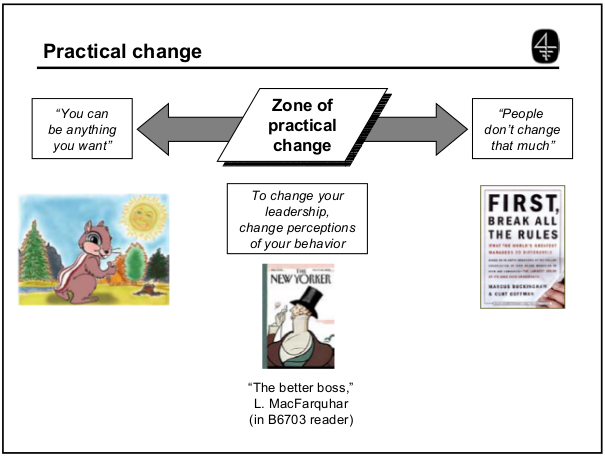“Extremes” usually aren’t
I’ve written before on the persuasive but specious rhetorical trick that goes something like
John is very conservative about these things. Mary is very liberal. Me, I’m practical and…
Do you sense that you’re probably going to agree with what the speaker next says? Extremists like John and Mary are difficult to deal with. People reject extreme views out of hand. You don’t want to be like that, do you? Being practical makes more sense, doesn’t it?
The speciousness is subtle. I’ll point the flaw out in a second. When you get it, you realize what the other person is doing and how to protect yourself from their influence when you don’t want it. You’ll start to see people doing it all the time.
The same technique shows up in other forms:
Fred works way too hard. He needs balance in his life.
or
Lisa is such an idealist. She needs to learn to be pragmatic.
People don’t always use the technique in two or three sentences. Often it comes in long conversation where they paint one group as too extreme to one side, another to another side, and themselves reasonably, practically, and pragmatically balanced in the middle.
I hope by the end of this post you’ll see words like practical, pragmatic, and balance as subtle attempts to influence you to adopt someone else’s values. The effect’s subtlety makes it effective, since not noticing it makes you more susceptible.
How they’re persuading you
Here’s the foundation of the technique. What determines whether someone lies to one side of someone else’s views or another, or how extreme their views are, is how their values differ. When someone tells you Jeff is on one side and Beth is on the other, that’s only if you share their values. From Jeff’s perspective, he’s not on the side. He’s in the middle because he knows people with views he’s balancing.
Same with Beth. From her perspective, she’s in the middle.
For a real-life example, I can tell you Newt Gingrich lies to the political right from me. In fact, his views seem extreme. But from his perspective, his views seem normal. In fact, he knows plenty of people to his right. However extreme his views seem to me, to someone else, they seem just about right. To someone else, he seems too far to the left.
The antidote
You can keep from being persuaded unknowingly by remembering
Everybody everywhere all the time sees themselves as balancing opposing views.
When someone says they’re balancing other people’s views, they’re subtly motivating you to adopt their values without thinking about it. Now you may want to adopt their values. Fine. But you may want to make yourself aware that they are doing it.
Just be aware that everyone has different values and sees different things to one side or the other.
An example
Here’s the real-life example that prompted me to write this post. Here are two slides from my leadership class at Columbia Business School. At this point of the class, my Professor was talking about how learning leadership changes you.
First he sets one extreme:
 His next slide balances it with another view, claiming the middle is “practical.”
His next slide balances it with another view, claiming the middle is “practical.”
 I don’t know what limits my ability to learn and grow, but the view from this slide motivates me to limit myself. The humor in the fictional chipmunk makes me not question using it to limit me, but when I think about it, I don’t want fictional chipmunks limiting me.
I don’t know what limits my ability to learn and grow, but the view from this slide motivates me to limit myself. The humor in the fictional chipmunk makes me not question using it to limit me, but when I think about it, I don’t want fictional chipmunks limiting me.
Sure, I don’t think I can be anything. I don’t expect to become Superman or run faster than the speed of light, but just thinking that having no limits is a silly fictional chipmunk thought limits me.
You could read the slide to say your ability to change lies somewhere between zero and infinity, which I would call a literal interpretation. But no one would waste time saying something so vacuous. For the professor to spend time saying you should be practical implies the limits are tighter than that.
It means that, unless I figure out my values for myself, at some time I may limit my growth, concerned about seeming like a ridiculous fictional chipmunk. Or maybe one time when I don’t want to change I’ll worry about seeming like the other “extreme.”
Lessons learned
- Lesson #1: be aware when someone tries to impose their values on you this way. Terms like extreme, balance, practical, reasonable, and pragmatic give it away.
- Lesson #2: know your values before considering adopting someone else’s.
I put the word extremes in the title in quotes for a reason: to communicate that what seems extreme is just what someone called extreme or implied was. In the process they implied you should use their values to evaluate what’s to one side or the other and by how far.
Read my weekly newsletter

On initiative, leadership, the environment, and burpees